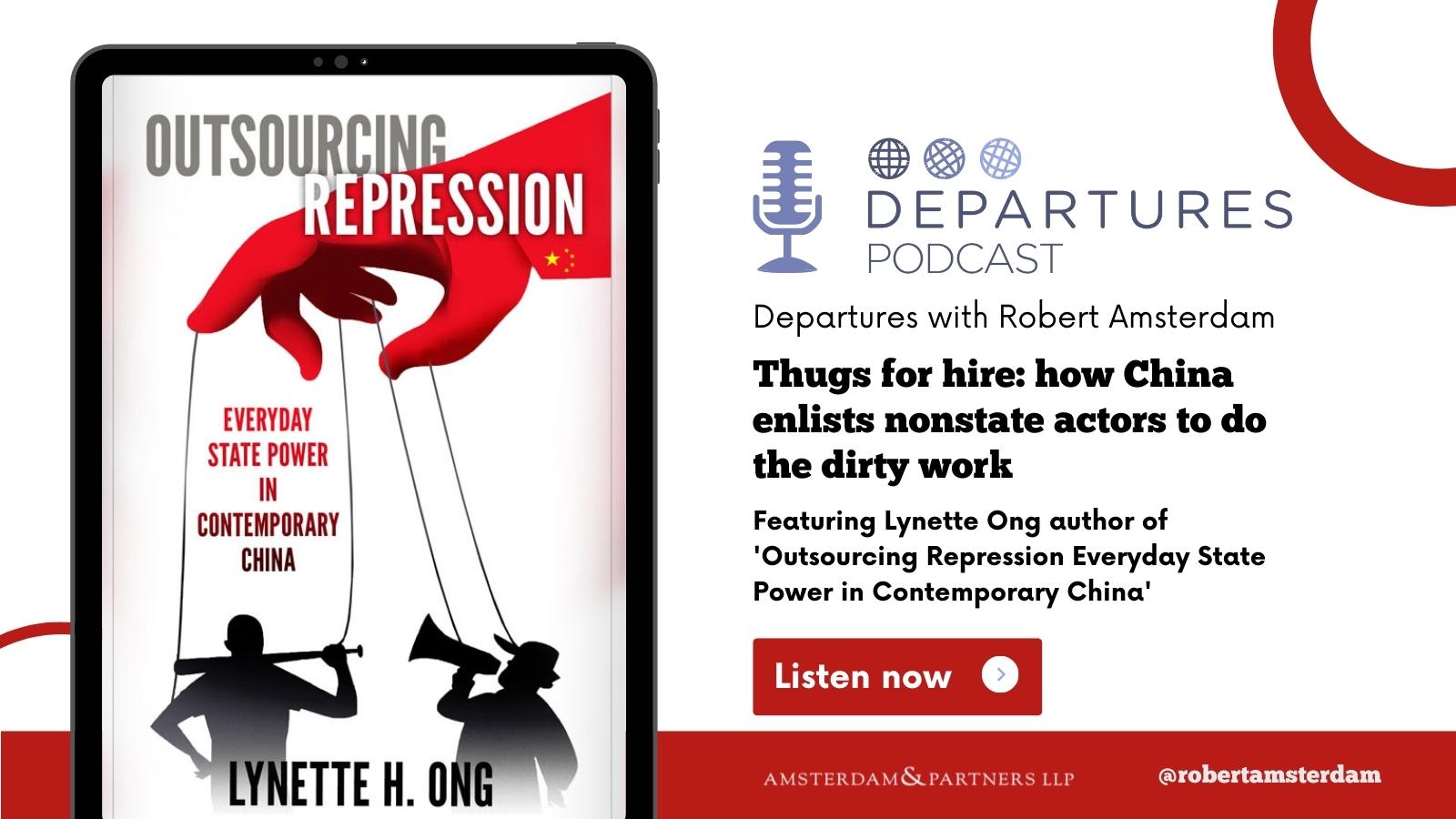Departures Podcast with Lynette Ong, author of ‘Outsourcing Repression Everyday State Power in Contemporary China’
State repression, whether or not it’s outwardly aggressive, invites backlash. So how does the Chinese state maintain control during disruptive periods of intense urbanization, even as heavy consequences impact society?
This week Departures is pleased to feature a discussion with Lynette Ong, a Professor of Political Science at the University of Toronto about her excellent new book, “Outsourcing Repression Everyday State Power in Contemporary China.”
Through the coordination of independent social forces, including thugs and gangsters, local governments across China have successfully repressed the masses in land expropriation cases, and through evictions for demolition projects. During the COVID-19 pandemic, these nonstate actors have morphed into medical personnel and volunteers who are known community members. Ong argues this leveraging of neighbors and familiar faces to enforce the zero covid policy contributes to social compliance amid what are seen as increasingly harsh restrictions on the most basic personal liberties.
In her discussion with host Robert Amsterdam, Prof. Ong discusses the recent zero covid policy and food shortages in Shanghai, where social unrest could be reaching a level unmatched by outsourced repression. Amsterdam and Ong discuss potential structural outcomes for how the party will need to adapt to manage social crises and if the current model experiences such a high profile break down.












